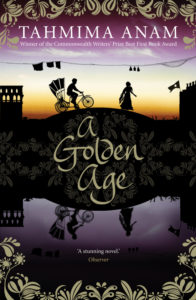 My criteria for top book is simply the book I loved the most. I guess that is the book that resonated the most, that moved me, that drew me in to an absorbing, interesting world, that had characters I wanted to spend time with. On the whole I don’t read a book unless I think I’m going to enjoy it. The only exception is our book group books which I’m obliged to read. Luckily this year they were all good and interesting in their own way: Ferrante’s ‘My Brilliant Friend’, Lily King’s wonderful ‘Euphoria’ (based on the life of Margaret Mead), Eggers’ spot-on Facebook/Google satire ‘The Circle’ and Imbolo Mbue’s flawed but fun migrant story ‘Behold the Dreamers’.
My criteria for top book is simply the book I loved the most. I guess that is the book that resonated the most, that moved me, that drew me in to an absorbing, interesting world, that had characters I wanted to spend time with. On the whole I don’t read a book unless I think I’m going to enjoy it. The only exception is our book group books which I’m obliged to read. Luckily this year they were all good and interesting in their own way: Ferrante’s ‘My Brilliant Friend’, Lily King’s wonderful ‘Euphoria’ (based on the life of Margaret Mead), Eggers’ spot-on Facebook/Google satire ‘The Circle’ and Imbolo Mbue’s flawed but fun migrant story ‘Behold the Dreamers’.
The first three are all honourable mentions as is Margret Atwood’s acute and wonderful ‘Stone Mattress’ (the book, a collection of stories, is uneven, though, but the title story is brilliant). Commendations also to Lucy Wood’s ‘Weathering’ – an atmospheric, moving and spooky tale set in a rain-drenched fenlands, and Atwood’s other wonderful and strange classic ‘Surfacing’ that somehow I had missed out on reading all these years – first published in 1972, if you can believe it. Joanne Harris’s ‘Gentlemen and Players’ was a satisfying, twisty thriller that I think they are making into a film.
But drum roll, or, more aptly, sit down quietly under a mango tree and sip a cup of Darjeeling – my favourite was ‘A Golden Age’ by Tahmima Anam. This wonderfully moving, sad and understated novel follows the lives of a mother Rehana and daughter Maya and son Sohail, at the time when Bangladesh was fighting for it’s independence from Pakistan. The novel captures you from the opening lines:
Dear Husband, I lost our children today …
How would she begin to tell him?
She got back into the rickshaw with the children … the graveyard was dotted with dusk mourners. They tossed flowers on the wet pelts of grass that grew over their loved ones. In the next row a man in a white cap cried into his hands. Beside him, an old woman clutched a spray of bokul.
Rehana held the round palms of her children.
‘Say goodbye to your father,’ she said, pointing to Iqbal’s grave.
The rest of the novel is Rehana’s explanation to her dead husband about what happened to her and their children. To get her children back from the court who has given custody to her wealthy brother in Lahore, Rehana scrounges money to build a house in her backyard that she rents out so that she can say she is financially independent. She is happy to be a widow cooking and having friends over and bringing up her children – feminist Maya and university radical Sohail. History, of course, steps in.
I’m conscious that this description would probably not draw anyone to read this book but, as with the best novels, it is not the plot: it is the atmosphere, the characters who get under your skin, the sense of the richness in human existence, shadowed by things none of us want to face.
I have Anam’s follow-up novel ‘The Good Muslim’ that follows Maya’s life to read this year.
- For the stats. Five male writers out of 33 books. Two memoirs, one non-fiction, one classic, eleven fantasy or spec fiction, three crime, the rest general fiction. I will try to up the classics in 2017.

